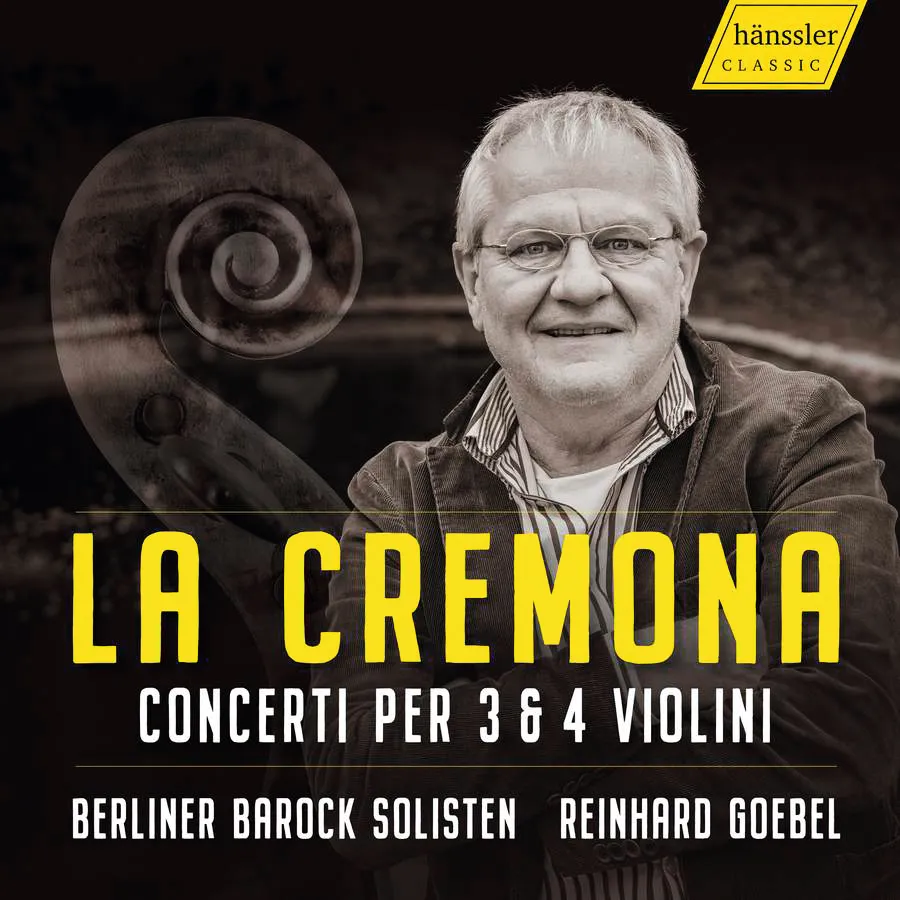
La Cremona Durante: Concerto in G minor; Leo: Concerto for 4 violins in D; Locatelli: Concerto for 4 Violins in F, Op. 4/12; Sammartini: Concerto for 4 violins in A; Vivaldi: Concerto for 3 violins in F, RV 551; Concerto for 4 Violins and Viola in B flat, RV 553 Berliner Barock Solisten/Reinhard Goebel Hanssler Classic HC22084 68:26 mins
This programme is of Italian concertos, mainly for four violins, from the early to mid-18th century. These are generally in the galantstyle, implying elegance, grace and unashamedly intended to please the senses. All these qualities feature to a greater or lesser extent in the five interestingly contrasted works on this album, though older contrapuntal disciplines have not been entirely abandoned. Leonardo Leo’s D major Concerto for four violins illustrates both sides of the coin with a fugal movement, a moderato in the dance metre of a siciliano, and a joyous formally uncomplicated Allegro finale.
Vivaldi comfortably holds his own here for melodic lyricism. In the first movement of the Concerto in F major, RV551, one of three violin soloists weaves an alluring cantilena over an arpeggio accompaniment in the last of the solo episodes. The expressive Andantewhich follows feels hard driven, offering minimal contrast with the flanking movements. Elsewhere, as in the finale of the other Vivaldi piece, this one for four violins, RV553, tempos are well judged. Compared with Vivaldi, the Locatelli concerto, from his Op. 4, seems rather tame though not devoid of charm. World-premiere status is awarded a Concerto in A major for four violins by GB Sammartini. It’s an attractive piece, yet hardly a mention of the composer and none of the work is made in Reinhard Goebel’s extensive essay. Furthermore ten years has been knocked off the poor fellow’s life-span. He died in 1775, not 1765. In all, though, an engaging release.
Nicholas Anderson